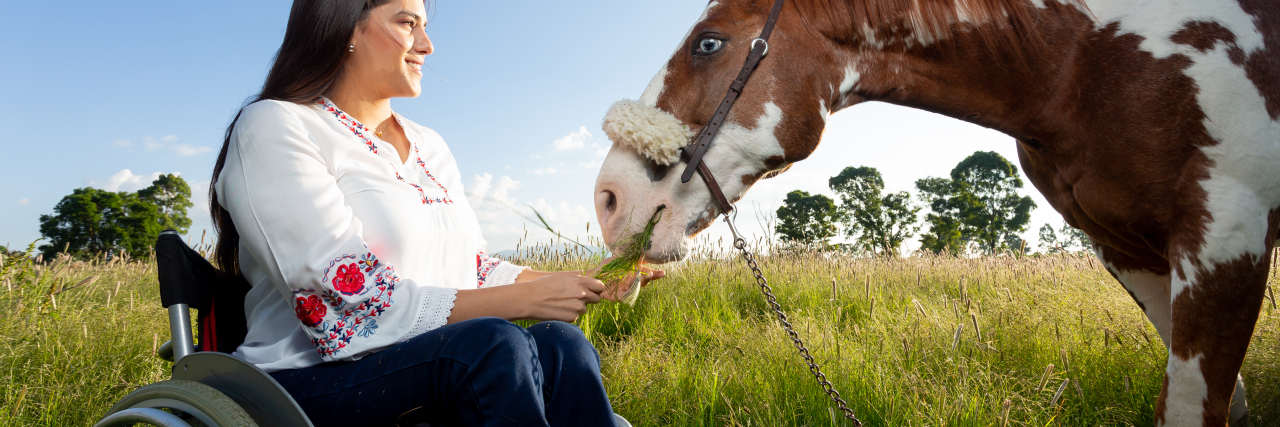I’m an ambulatory wheelchair user. I am not “wheelchair-bound,” and many people who are wheelchair users, whether it be their permanent aid to getting around or occasional form of transportation, detest the term “wheelchair-bound.” We are wheelchair users.
The term “wheelchair-bound” brings illustrations to my mind of being tied up in a wheelchair, and it sounds so restrictive, when in fact, I have found freedom, positivity, lightness, ease, safety and independence through using my wheelchair. Walking is what’s restrictive for me, as although I can walk, I can only do so for a very short, awkward, wobbly distance. I can’t fall or faint when I am in my wheelchair; it keeps me safe. I can manage to do so much more with the aid of my wheelchair; without it, I wouldn’t be able to leave the house.
Often when I’m out and about in my wheelchair, people assume and occasionally ask me what is wrong with my legs, trying to ascertain why a seemingly healthy young woman is in a wheelchair. Added to that, being an ambulatory wheelchair user, often people don’t understand why someone can get out of a car and then make a few assisted steps towards their wheelchair before sitting down. Thankfully, I’ve never faced the hurtful accusations that some ambulatory wheelchair users I know have faced. There definitely needs to be more awareness around why someone may use a wheelchair and the diversity of those who use wheelchairs, including ambulatory wheelchair users.
I feel that television is largely to blame for the stereotyping of wheelchair users. Often, characters have a spinal cord injury or are war veterans who came into contact with an IED, and often the character views their wheelchair in a negative light. In reality, however, many of my friends and I feel the total opposite about our wheelchairs; we love our wheelchairs and we love customizing them and claiming them as part of us. We are proud of and thankful for our wheelchairs.
“Wheelchair-bound” is quite an ableist term. As a wheelchair user, I am more restricted by an ableist society than my wheelchair because the world isn’t built for wheelchair users. If ableism and inaccessibility didn’t exist, the term “wheelchair-bound” may never have existed.
We need more diversity in television and advertising, including ambulatory wheelchair users. We need more disabled people playing disabled roles or as presenters on television programs — not just sidelined to present events such as the Paralympics, but on mainstream shows. We also need diverse disabled models in the fashion industry and in advertising, including ambulatory wheelchair users.
As wheelchair users, I believe we need to share the many reasons why someone may need to use a wheelchair to break down the stereotypes that have been built up over the years. We also need to show people how proud we are to be wheelchair users and that we are not bound by our wheelchairs — they give us freedom and independence to live our lives.
Getty image by Gerardo Huitrón.

